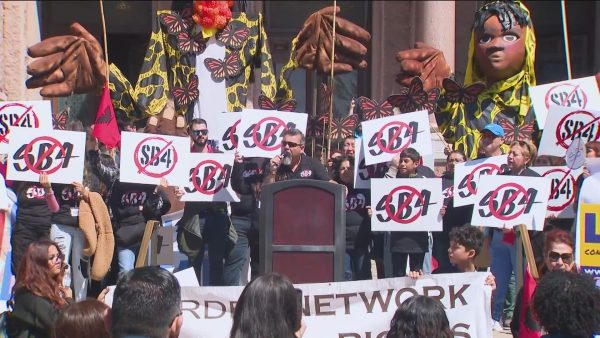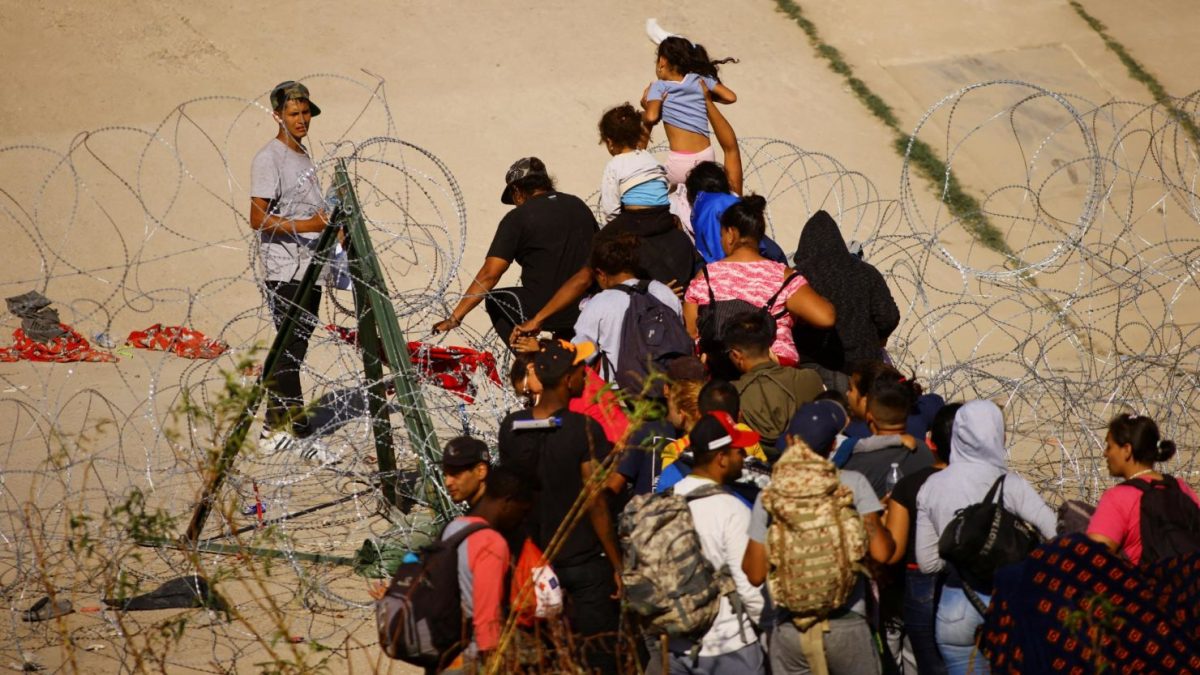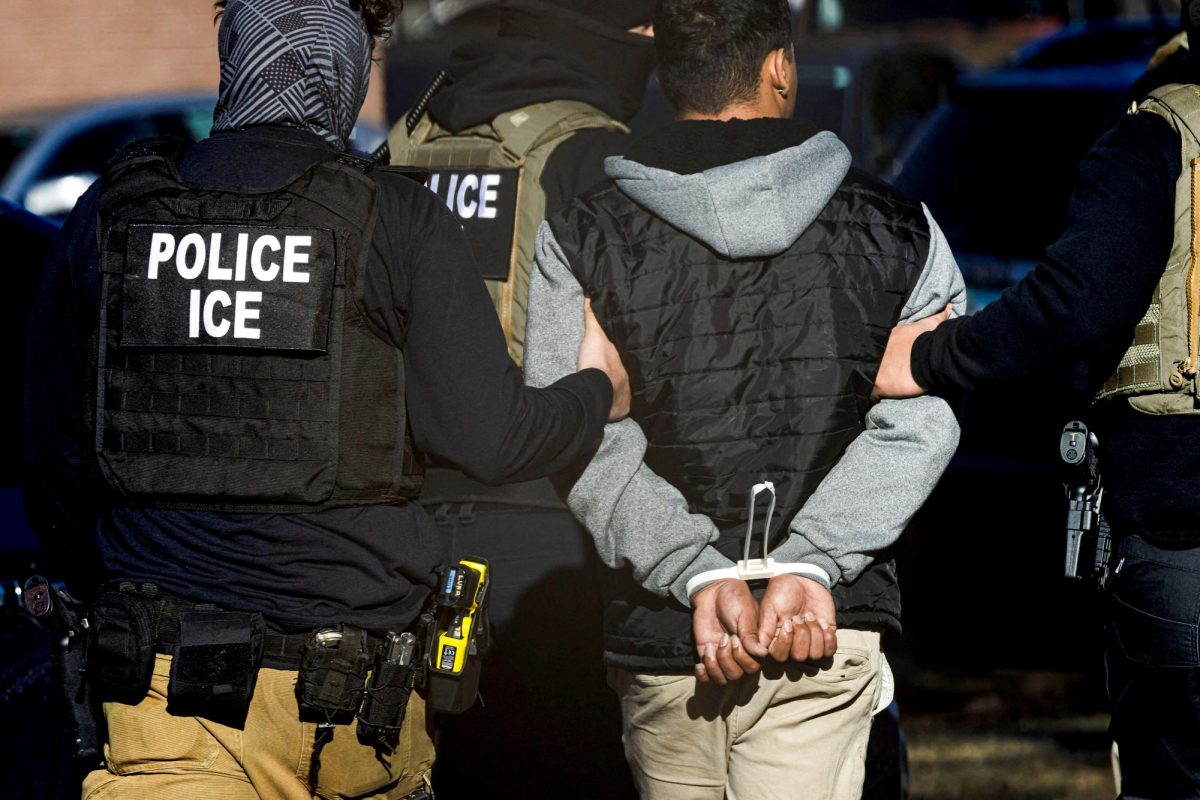On Dec. 18, 2023, Texas Governor Gregg Abbot signed Senate Bill 4 (SB4) along with several other bills that would help Texas with their “border security efforts” into law.
SB4 was set to take into effect on March 5, and Texas Republicans who supported the bill say “it’s a response to the Biden administration’s border policies.” They have been criticizing Biden’s policies for failing to keep the border secure.
SB4 would allow local and state officers to stop and arrest anyone they suspect to have crossed the border illegally, except in churches/places of worship, hospitals and schools. Entering the U.S. without going through the port of entry is illegal on the federal level, but SB4 would handle this violation on the state level.
The bill would charge first-time entry migrants with a Class B misdemeanor and possible sentences include 180 days in jail and a fine up to $2,000. If the migrant is found to have re-entered the country illegally, they would be charged with a felony offense and could be punished up to two to 20 years in jail. The type of charge depends on whether the person has previously been convicted of certain crimes as well.
The bill would also allow state judges to order migrants to return back to Mexico if they are convicted. Additionally, judges could choose to drop charges if a migrant agrees to return to Mexico willingly.
Hours before the bill was set to take into effect statewide, not just near the border, the bill was temporarily stopped from taking into effect by a federal U.S. district judge, David Ezra. The reason for the stop was because the Justice Department and the American Civil Liberties Union(ACLU) filed a lawsuit against SB4, and Judge Ezra issued a preliminary injunction that would halt the bill from taking effect while the case was still being heard and until final decision was made.
A 144-page order was published on Thursday, in which Ezra wrote “the Constitution and Supreme Court precedent make clear that states cannot enforce immigration measures without federal approval, and that the Texas law conflicts with federal law.”
Texas made an argument saying that the “state’s authority to repel an invasion allows it to enforce SB4.” According to the U.S. Customs and Border Protection data, federal agents encountered nearly 2.5 million migrants at the southern border in 2023, breaking a previously record held in 2022 for the most migrants coming at the border.
Ezra responded, explaining that “surges in immigration do not constitute an ‘invasion’ within the meaning of the Constitution.”
Since the federal court temporarily stopped the bill from taking place, Texas would be able to start implementing the law if the Supreme Court didn’t take action or if any other court didn’t hear the appeal.
On March 13, the Supreme Court extended a freeze on the bill until March 18 to look further into the bill. On early Tuesday, the Supreme Court allowed Texas to begin enforcing SB4, but it was not the final word. Later that day, the fifth U.S. Circuit Court of Appeals stopped it again from being implemented. Many say that the bill is unconstitutional and will not stop fighting against it.

On Saturday, hundreds of protesters were stationed outside of the State Capital in Austin to protest against SB4 and Operation Lone Star. Many activists and advocate groups for immigrants were holding signs sending messages to the state legislators. All of them had concerns, but one of the biggest worries is that this bill will lead to dangerous racial profiling.
“Local authorities, county authorities are going to be able to stop you because of the color of your skin,” said protestor Jessie F. Fuentes. “It upsets me that legislators in this building behind me knew what they were doing – it’s a violation of the constitution.” Many immigrants are now left to decide whether or not they will leave the state like how the immigrants of Florida did when similar laws were put in place just last year.
This isn’t the first time people have called Abbott’s “border security efforts” controversial.
In July 2023, “buoys” were deployed in the Rio Grande to act as barriers to stop immigrants from crossing the River into the country. The buoys are about 1,000 feet long and are fastened to the River bottom and have nets below the water to prevent people from swimming underneath. The buoys rotate so that people can’t climb over them. Many people, even the federal government, said that the buoys were a “Humanitarian and environmental” concern, and subsequently, many immigrants drowned because of the barriers.
After Texas received major backlash for the barrier, they did not remove them. The barriers are still up to this day but there will be a rehearing of the case of the buoys as they were to be removed by a court order in Sept. 2023, but the state asked for an en banc hearing and will have a rehearing of the case in May.
Texas not only put the buoys along the Rio grande, but they also placed more razor wire along the southern border in attempts to secure the border. The decision over the razor wire created a legal battle between the federal government that involved the Supreme court to hear the case. Federal Border patrol agents were blocked by Texas’s National Guard from accessing the Rio Grande to help assist drowning migrants in the river. The latest legal battle between Texas and the federal government is now about SB4.
If SB4 is allowed to take into effect, it would be one of the toughest immigration laws that a state would implement in modern history. The courts are still hearing the case.








